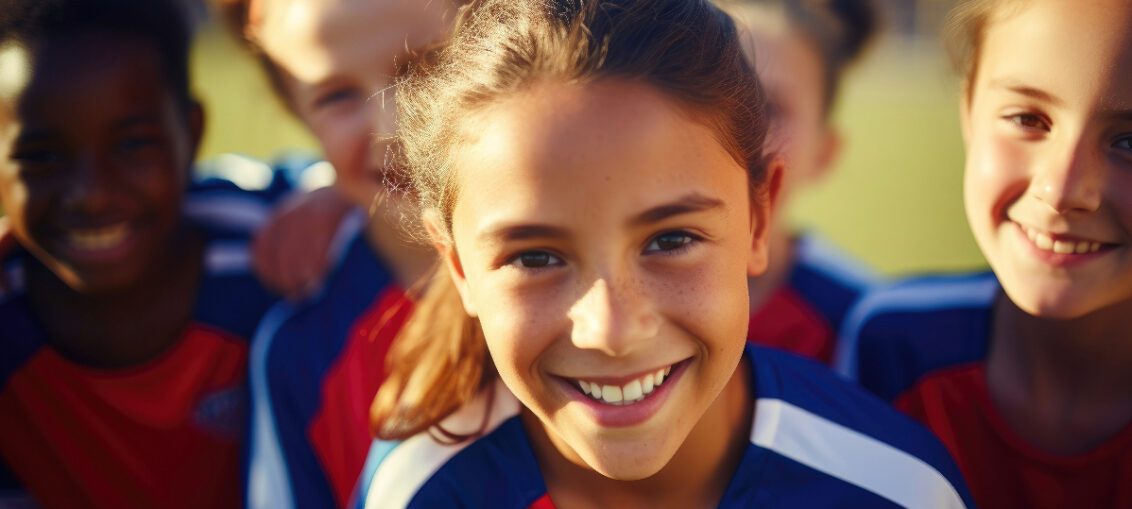
By Justine Curatolo
Sport is universal. “Sport speaks to people in a language they can understand.” It transcends boundaries and provides opportunities for all human beings regardless of race, colour, religion, age, physical ability, circumstance or economic background to connect with each other and the world around them. Further, sport can be used to achieve success through competition, financial gain or personal achievement, yet, perhaps the biggest benefit from sport is that it promotes social inclusion amongst the disadvantaged.
In a recent study, the AIHW shows that “participation in sports or recreational programs is regularly demonstrated to increase social inclusion and decrease exclusion.”
Homeless World Cup
The Homeless World Cup is a great example of using sport to promote social inclusion amongst the disadvantaged. “The Homeless World Cup uses the power of football to energise homeless people so they can change their own lives.”
The Homeless World Cup is an annual international tournament of modified soccer, the participants identify as homeless and are sponsored by a welfare support organization which maintains ongoing support throughout the year. One of the reasons this initiative is so successful is that it takes the ‘face’ of homelessness into the mainstream and normalizes it. The tournament is held in the city centre so people on their lunch break or while shopping can stop and enjoy watching some soccer.
Additional benefits to the participants themselves, include the friendships made, being able to connect with a support organisation, stay fit and ultimately belong to a program which is beneficial in so many ways. “Street Soccer promotes social inclusion and personal change for participants by providing support and promoting participation, inclusiveness, commitment and team spirit.”
Multi-Cultural Programs
A case study on the Sports Without Borders website, quotes a mother (recently arrived migrant) whose son is involved a specific sports program “(it) is very beneficial for Dan as it increases his social networks and his understanding of life in Australia.”
There are many benefits of using sport with multi-cultural groups, in particular recently arrived migrants to promote social inclusion within their new community. Sporting programs can be one to one, held in a group, structured with rules and set outcomes or take on a freestyle approach.
Structured sporting programs allow for participants to experience consistency with expectations as well as to build trusting relationships with the support workers. Team sport creates a landscape for participants and support workers to explore specific topics or areas of concern within clearly defined boundaries. For example, sport “and recreation can be used to explore real life issues and challenges, particularly as they relate to the dislocation and tensions inherent in the settlement process Often viewed as a microcosm of life, the sporting field provides an environment whereby actions and consequences can be explored.”
Structured sporting programs can bring together people from different language groups and backgrounds by using activities with a common goal. These instructions can be demonstrated to participants using actions and hand gestures, with a limited reliance on vocabulary, and as a result, allow for greater participation for otherwise isolated or disengaged recently arrived groups of people.
Not only does sport provide direct benefits to the participants, but the group members themselves also provide opportunities for social inclusion, friendship and connection to others. “Sport and recreation represents a practical and accessible entry point for addressing the needs of young people from refugee and migrant backgrounds and providing links between and within communities. ”
The AFL run some very successful multi-cultural programs which have grown in size and opportunities, they now offer ongoing football programs at the local level as well as one off programs such as the multi-cultural cups. The AFL has realized the potential for talent and skill amongst this group of people and is now actively supporting player development and recruitment through these multi-cultural programs, and some of these recruits are now playing at the elite level of AFL.
Indigenous Specific Programs
Studies show that approximately one-third of the Indigenous population participates in some form of sporting activity (ABS 2010). “These participation rates demonstrate that sports and recreation activities are an important part of daily life for many Indigenous people.” Sporting programs not only provide an opportunity to address the disadvantage that many Indigenous groups are facing, they can also act as a pathway to achieving success in the sporting arena.
As mentioned earlier, structured sports allow the participants to connect with support workers, each other and the world around them, which for Indigenous communities who are often in the minority in urban areas and face a variety of risk factors, can provide an opportunity for improved social inclusion in the broader community.
Furthermore, in remote Indigenous communities where infrastructure, workers and funding for long term projects to address systemic disadvantage and risk factors is often unreliable, inconsistent and inappropriate, structured sporting programs can provide a real benefit to participants and their communities. “The evidence suggests that providing locally relevant sports and recreation programs can be useful in building a sense of purpose, hope and belonging in these communities.”
For many young Indigenous people who have experienced trauma growing up, team sports provide a safe space to learn about the world around them as well as developing coping mechanisms. When young people experience trauma, they often haven’t had the chance to play which is so important in the formative years of a person’s life, so the opportunity to play with your peers in a team, significantly enhances the person’s ability to become self-empowered as well as develop resilience for the future for everyone.

I’m interested, but it’d be good if there was some info on how we could set a program up or get involved in one…
what is the greatest goal in the sport event you make?